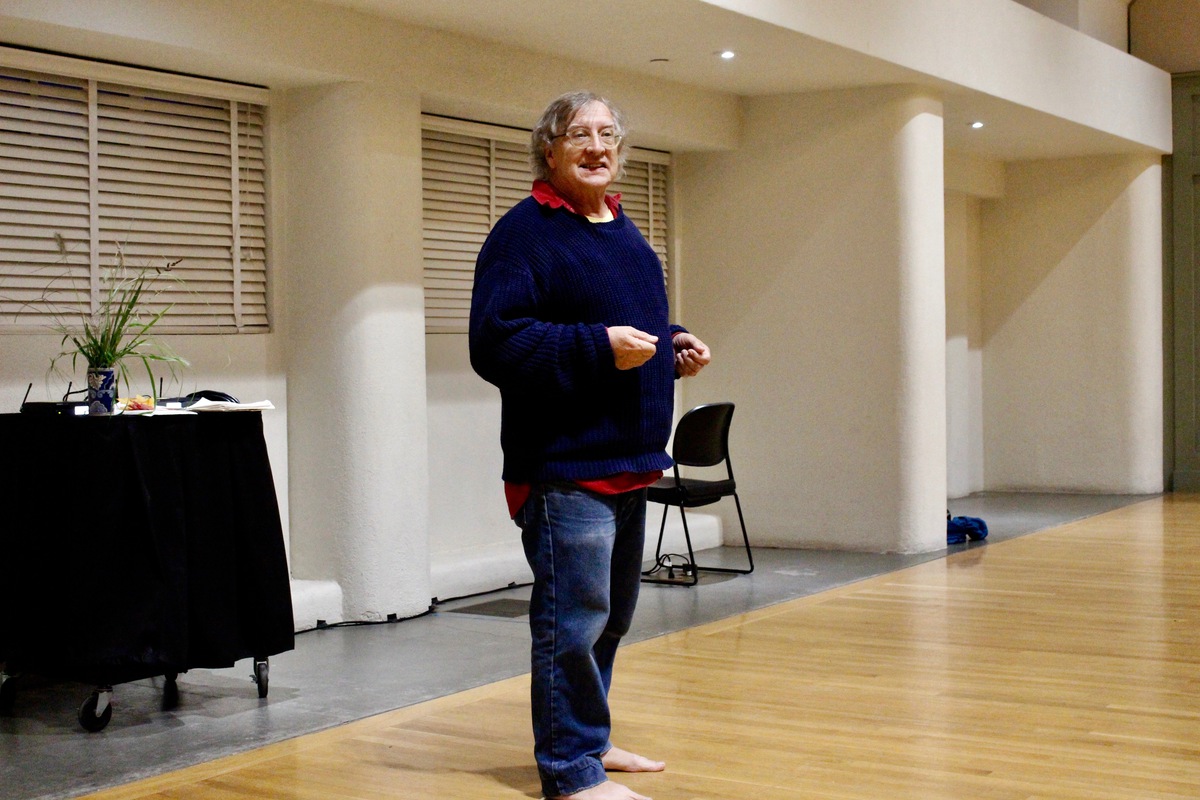
On Tuesday Oct. 8, Walt Whitman’s renowned utterance “Song of Myself” was presented on what would have been his 200th birthday in Smith Hall. It was performed by the actor Johnny Stallings and was followed by a group discussion led by Associate Professor of English and Department Chair Rachel Cole and Oregon Poet Laureate Kim Stafford.
“Song of Myself” is a joyful and prideful declaration. Whitman expresses love for himself, for you, for all people, for every earthly item and for all parts of the universe. It deals with a love so broad that it encompasses everything, every good and every wickedness. It was a revolutionary poem when it was published, and it is still, in many ways, a revolutionary poem today. As Stallings said, “This might be the sacred text for democracy.”
Stallings’ performance was magnificent. He made “Song of Myself” a conversation. He engaged the audience, each and every one of us at one point or another. He added tone, breathing, sniffling, jumping, dancing, gesticulations and voices. At one point, he crouched on the floor, then laid on it. At another, he threw autumn leaves on the ground.
He held nearly 40 people in rapt attention for almost an hour. More amazingly, he told us later that there were 45 minutes of poem that he did not use.
He met our loud applause with gratitude. He then took two theatrical bows for himself, and finally, he pointed at the ceiling to direct the audience’s praise to the memory of Whitman.
The group gathered for discussion included people of varied demographics. The majority were full-grown adults; there were many gray and white-haired heads that night.
Cole, Stafford and Stallings all proved to have a wealth of knowledge about Whitman and the poem. The contributions of the audience were equally enticing.
One woman said, “It seems … like a poem of epic creation.” The line, “I say there is nothing greater than the mother of men,” reminded her of becoming a mother for the first time, when she felt as though she could be the mother of all children. A gray-haired woman described it as sensuous and later chimed in that no one had yet “mentioned the patriarchy.” Another woman remarked on Whitman’s “consciousness of the unity of everything.”
There is indeed a feeling of unity that “Song of Myself” inspires, which was exemplified especially in this utterance. One couple nestled close to each other during the reading. The woman behind me followed Stallings’ oration in her book. Every person was there because they knew and loved the poem, or because they wanted to be introduced for the first time.
As the poet says, if someone can find Whitman once more on the soles of their boots, perhaps an echo of him was found that night in Smith Hall.
Subscribe to the Mossy Log Newsletter
Stay up to date with the goings-on at Lewis & Clark! Get the top stories or your favorite section delivered to your inbox whenever we release a new issue.

Leave a Reply